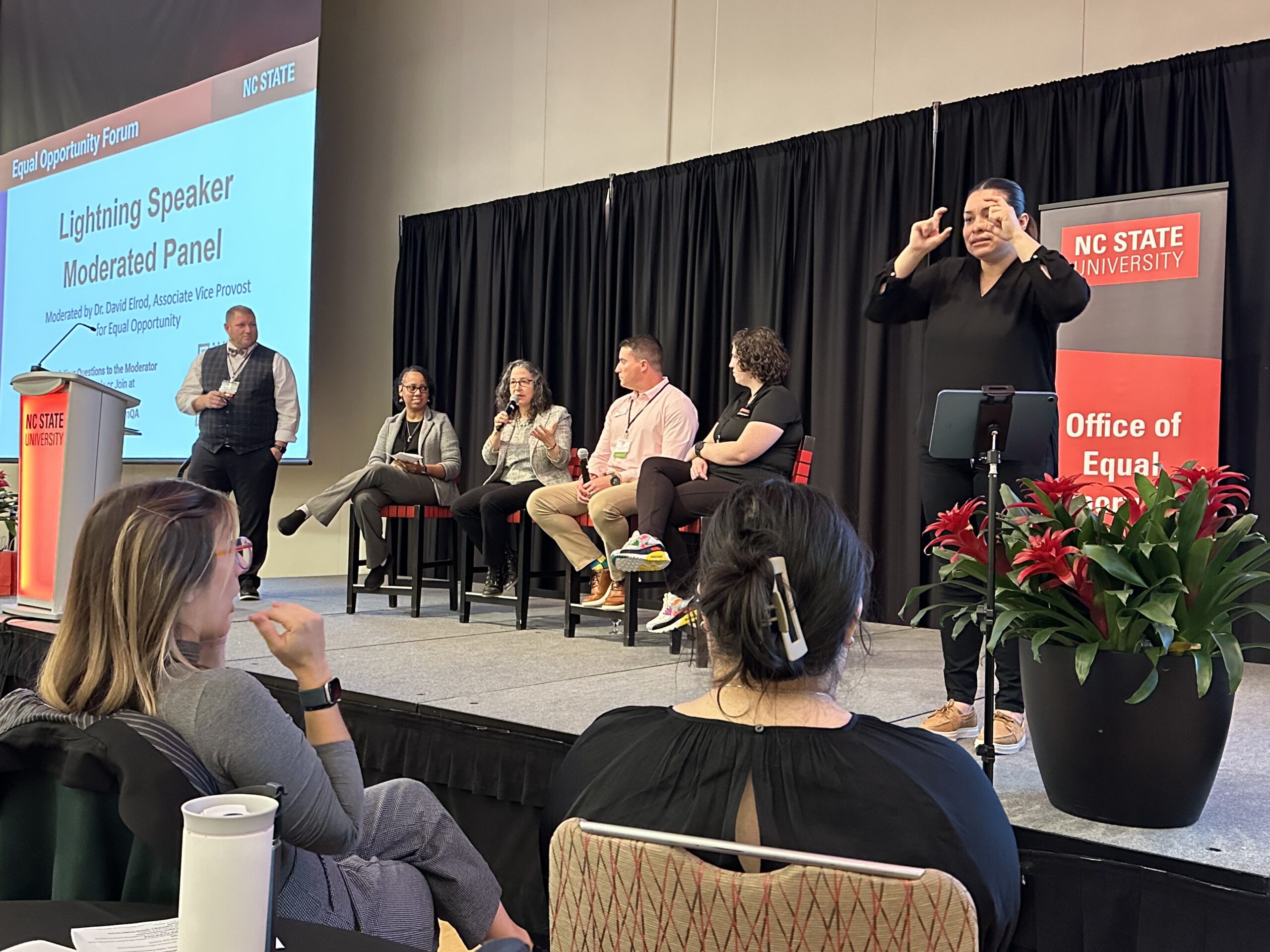Dissertation Mentoring Fellows Enhance the Graduate Experience

Dissertation Mentoring Fellows (DMF) is a new program engaging faculty in a year-long exploration of ways that dissertation advisors can enhance the graduate experience, promote successful completion of the doctoral degree and provide better preparation for faculty careers for women and underrepresented minority doctoral students. Eight faculty are serving as dissertation mentoring fellows in the inaugural 2015-16 academic year: Tiffany Barnes, Computer Science; John Classen, Biological and Agricultural Engineering; Liara Gonzalez, Clinical Sciences; Edward Kick, Agricultural and Resource Economics; Karen Leonas, Textile Apparel Technology and Management; Donald Martin, Statistics; Lori Rothenberg, Textile Apparel Technology and Management; and Angela Wiseman, Teacher Education and Learning Sciences.

The aims of the program are to catalyze discussion, develop knowledgeable faculty advocates and spark department initiatives to increase the diversity of doctoral students choosing and successfully embarking on academic careers. Dissertation mentoring fellows participate in a monthly reading group discussing the research literature on cross-cultural mentoring, the experience of graduate students from underrepresented groups, graduate student socialization and career choice and how faculty advisers affect the experience and options available to graduate students.
Each fellow undertakes a project to learn about the experiences and perspectives of graduate students and faculty in their department, to engage their faculty colleagues in discussion about diversifying the faculty pipeline, or to build departmental infrastructure for mentoring diverse doctoral students. Short descriptions of three DMF projects follow, which will give an idea of the types of impact that the fellows are aiming for.
In the College of Textiles, Karen Leonas and Lori Rothenberg are organizing a half-day workshop for faculty to gain a better understanding of effective mentoring strategies that can lead to increased retention and completion of degrees for all Ph.D. students and specifically those of underrepresented racial and ethnic minorities.
In Biological and Agricultural Engineering, John Classen plans to work with a professional facilitator to engage faculty and graduate students in identifying challenges and brainstorming approaches to support the completion of graduate programs. This initiative focuses on two goals: (1) to expand faculty knowledge about challenges of graduate students and the pipeline to the professoriate, and (2) to identify and implement practices to address those challenges.
Ed Kick, in Agricultural and Resource Economics, is developing an annual community project that will engage a coalition of diverse faculty, graduate students and community participants in study of community displacement in Raleigh area neighborhoods. This Raleigh Area Project is designed to provide both graduate students and faculty with experience with important research and mentoring skills in diverse research mentoring teams producing local action and work publishable on the national level.
The Dissertation Mentoring Fellows program is co-sponsored by the Office for Institutional Equity and Diversity and the Graduate School.
Dr. Marcia Gumpertz is assistant vice provost for faculty diversity in the Office for Institutional Equity and Diversity.
- Categories:


